.
Very many apologies to those of you who’re waiting for Instalment #9 of the “What Makes A Fantasy Hero” series – there’s been a delay, but it should post some time over the weekend.
 |
| What makes a hero? |
In the meantime, I thought I’d feature The Band of Brothers, which is a heroes-related theme. It first posted on the late, great SF Signal.
The Band of Brothers was an early instalment in the “Having Fun With Epic Fantasy” series I commenced on SF Signal and continued on my own “…on Anything, Really” blog. (In fact it’s still continuing and is up to #14 – no small endeavor, I assure you! :D)
Enjoy – & Heroes #9 will post shortly! (Two instead of one – what could be better?!)~*~
 |
Having Fun with Epic Fantasy: The Band of Brothers
“…And Crispin…[Day]…shall ne’er go by
From this day to the ending of the world,
But we in it shall be remembered –
We few, we happy few, we band of brothers;
For he to-day that sheds his blood with me
Shall be my brother…”
~ William Shakespeare: Henry V
If anyone doubts epic fantasy’s strong and enduring roots in story, this quote from Shakespeare’s Henry V (the famous St Crispin’s Day speech made on the eve of Agincourt) must dispel their error. For the famous quote, “we band of brothers”, speaks to the heart of epic fantasy.
 |
We find the “band of brothers” throughout fairytale, folklore and myth: Robin Hood and His Merry Men, King Arthur and the knights of the Round Table, Penthesilea and the Amazons. The “band” ideal crosses into history as well, with the Spartan 300 at Thermopylae, the 47 ronin-and the more contemporary defence of Rorke’s Drift, which inspired Tanya Huff’s Valor’s Choice and is alluded to (as the basis for an event in the Wasp/Dragonfly war) in Adrian Tchaikovsky’s Shadows of the Apt series.
 |
Myth, legend, history: no wonder the “band of brothers”, or “buddies”, lies at the heart of epic fantasy (and a great deal more contemporary genre: Star Wars, Buffy, Firefly, Babylon 5 – I rest my case.) But it is the link to the quest-journey and tales of war, from Roland and Oliver at Roncesvalles, to Blenda and the shield-maidens of Småland, that make the “band” so apt to epic fantasy, with its focus on large-scale conflict and world-altering events.
 |
| Buffy -- "The Scooby Gang" |
Although Tolkien’s “nine companions” who set out for Mount Doom are the obvious example, Steven Eriksons’ Malazan series includes the Bridgeburners, the Bonehunters, and the “chain of dogs.” There’s also the bridgebearers in Brandon Sanderson’s The Way of Kings – and the “band of brothers” characterizes David Gemmell’s writing: with “The Thirty” in his Drenai novels, as well as the defence of Dros Delnoch in Legend, and The King Beyond The Gate‘s friendship between Tenaka Khan and Ananais, which transcends cultural difference and traditional enmity.
 |
| The Fellowship if the Ring: the nine companions (plus Bill the pony...) |
Guy Gavriel Kay’s work also exemplifies use of the “Band of Brothers” motif, notably in A Song for Arbonne where the element that most defines the protagonist, Blaise, is his friendships-more even than his hatred for his father and bitterness over the betrayal of his homeland. The “band of brothers” also charts the heart of Kay’s The Lions of Al-Rassan, where the friendship between Rodrigo Belmonte and Ammar ibn Khairan ultimately cannot transcend traditional enmity and cultural and religious difference.
 |
But is the “band of ‘brothers'” theme solely the preserve of male writers and male-centric stories? I am glad to answer with a resolute “no.” Barbara Hambly’s The Ladies of Mandrigyn focuses on two separate “bands of sisters”: Sheera Galernas and the title’s ladies, forming themselves into a “scared band” to retake their city from a tyrant wizard; also the mercenary, Star Hawk, and courtesan, Fawn, thrown together in their quest to retrieve an abducted companion.
 |
Among Robin McKinley’s heroines, Aerin and Hari both fulfil their quests with the aid of sworn companions-although these comprise more animals than humans in Aerin’s case, drawing on the fairy- and folktale origins of the “band of buddies.” And the friendship of Raederle, Lyra of Herun, and Tristan of Hed, together with Lyra’s companion guards, makes Patricia McKillip’s Heir of Sea and Fire a memorable read.
 |
It could be said that our enduring love for “the band” is simply another escapism. But then there are those examples from history… So perhaps we all just love those high, doomed tales of sacrifice and valor… Or maybe, somewhere in the mix, we recognize that comradeship and friendship are amongst the few human qualities capable of transcending self interest. As to whether they succeed, or not – well, that’s what puts the drama in the storytelling!
~*~

About The Author:

Helen Lowe is an award-winning novelist, poet, and lover of story. With four books published to date, she is currently completing the final instalment in The Wall Of Night series.
Helen posts regularly on her “…on Anything, Really” blog, monthly on the Supernatural Underground, and tweets @helenl0we.

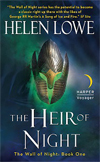
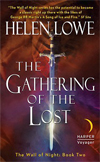
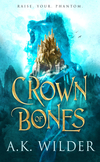
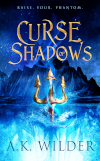
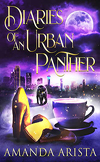
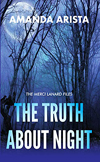

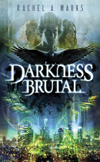
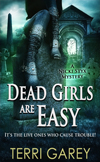
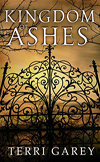
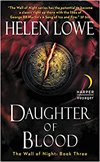
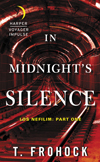
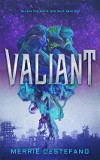
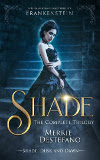

No comments:
Post a Comment